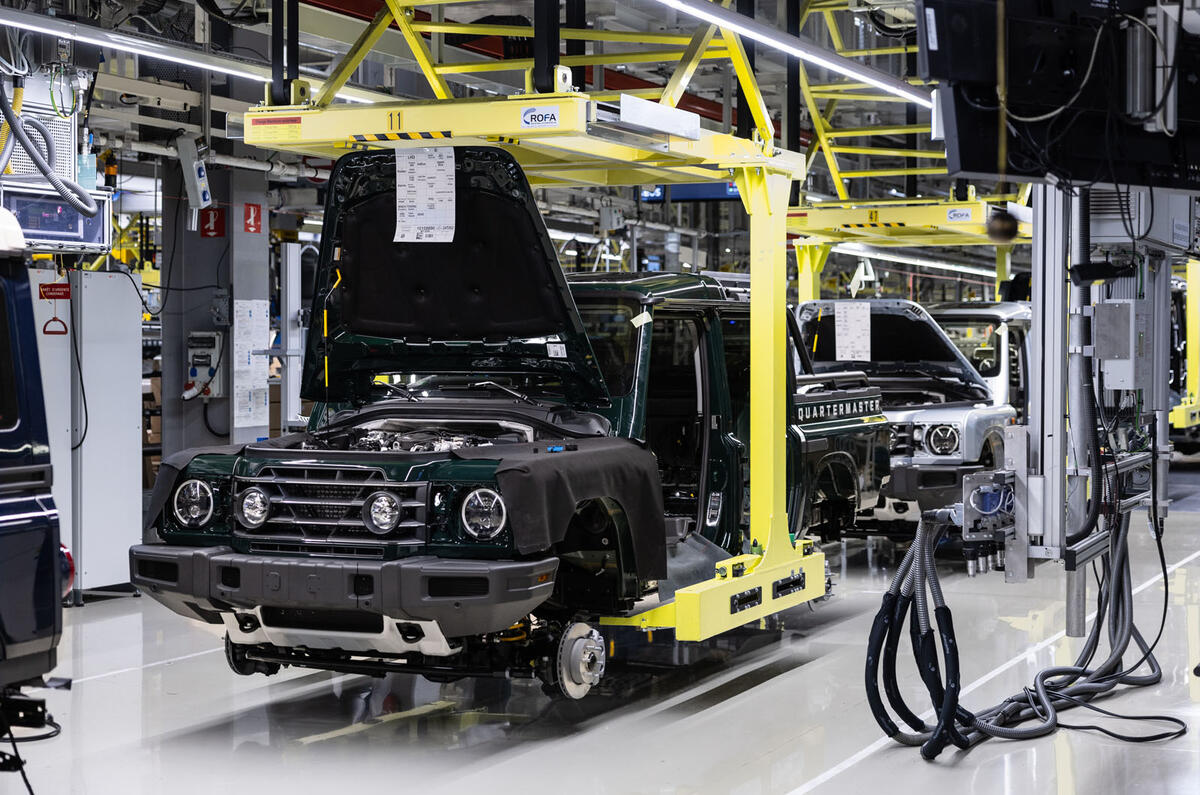Ineos has paused production of the Grenadier indefinitely after one of its critical suppliers hit financial difficulties.
Ineos Automotive CEO Lynn Calder told Automotive News Europe that it is unlikely to restart until “toward the end of the year or early next year” because the company has run out of a trim piece “that we can't sell the car without”.
Calder said the supplier of the part is in a “pre-insolvency situation” and that Ineos is seeking an alternative manufacturer for the trim piece.
The pause comes at an awkward moment for Ineos, which is on the cusp of launching in the critical Chinese market, as well as in Mexico.
According to figures from analyst Jato Dynamics, Ineos sold 847 Grenadiers across Europe (including the UK) between January and the end of August this year, a drop of 35% compared with the same point in 2023.
Data from the Society of Motor Manufacturers and Traders states that Ineos has registered 187 cars in the UK so far this year, a 67.9% reduction on the 583 that it had sold by the end of August last year.
These figures make its global expansion – to regions where large SUVs are in greater demand – especially important.
As previously reported by Autocar, Ineos is also planning a move upmarket, having put development of the smaller electric Fusilier on hold.
“What we wanted to achieve is no longer possible,” said George Ratcliffe, who was recently promoted to the role of Ineos’s chief for North America. “When the Grenadier project started, what we said was: ‘We’re going to build a really affordable, easy-to-fix utilitarian vehicle that will be good for farmers.’ It’s a gap in the market. But with the modern world and what you need – engines, pedestrian protection rules, CO2 emissions, regulation on vehicles – you cannot do that any more."







Join the debate
Add your comment
Sir Jim's best way out of this is to go talk to JLR, admit they were right about the product's viablity and see if they'd take the operation off him. He'll lose a fortune but if he wants to keep it alive JLR are realistically the only company that can make this work. They could sell it as the Classic Defender, use their own engines and their own factories to get costs down and pump it through their large dealer network. It may be a halo model for them, with low start up costs. They could probably run this model for 15 years or so and target it at newer markets like Africa. As it is the economics don't work and so this project is sadly doomed.
In an ideal world that would help Ratcliffe, but he's a billionaire and doesn't need help for his own follies. Especially not when he told you to vote for Brexit but didn't hang around afterwards.
From a JLR perspective I'm not sure what they'd get out of this. A model that isn't selling isn't going to help them. If it has done anything for JLR it's proven that their decision with the New Defender was absolutely correct. It's vindication for them.
To a certain extent you could then use it as an exercise of what went wrong? And when doing that you'd have to look at body-on-frame pickup trucks in the US as they seem to be able to produce inexpensive ones there.
Do we think that, if it hadn't looked like an almost a Defender,would it have sold better?, I can't comment on build quality and how it looks in the metal,but judging by the comments,it isn't that bad a vehicle, is it good off road?, I don't know, has there been any problems with them?
I think it looking like a classic Defender was actually a good thing, and certainly unavoidable. Utilitarian 4x4s tend to look boxy and the same. The problems were many:
Not being built in Britain (you should have read the comments on 4x4 forums, that put a LOT of people off).
Not being built hose-out.
Not being built firstly as a 2-door, then as a 4-door.
Not being built with a simple engine which could be repaired in the Outback.
Not being of a reasonable price.
Jim Ratcliffe evidently went mad. Ineos held a competition to name the Grenadier. Turns out that it was all a PR stunt - they had decided on Grenadier from the off. That upset quite a few people - being taken for mugs. From the start, it should have been (and was supposed to be) literally taking over from the classic Defender 90...cheapish, simple, hose-out. Jim Ratcliffe got just about everything wrong.
As for off-road, it's too low, and almost as technical as the new Defender, but still very capable.